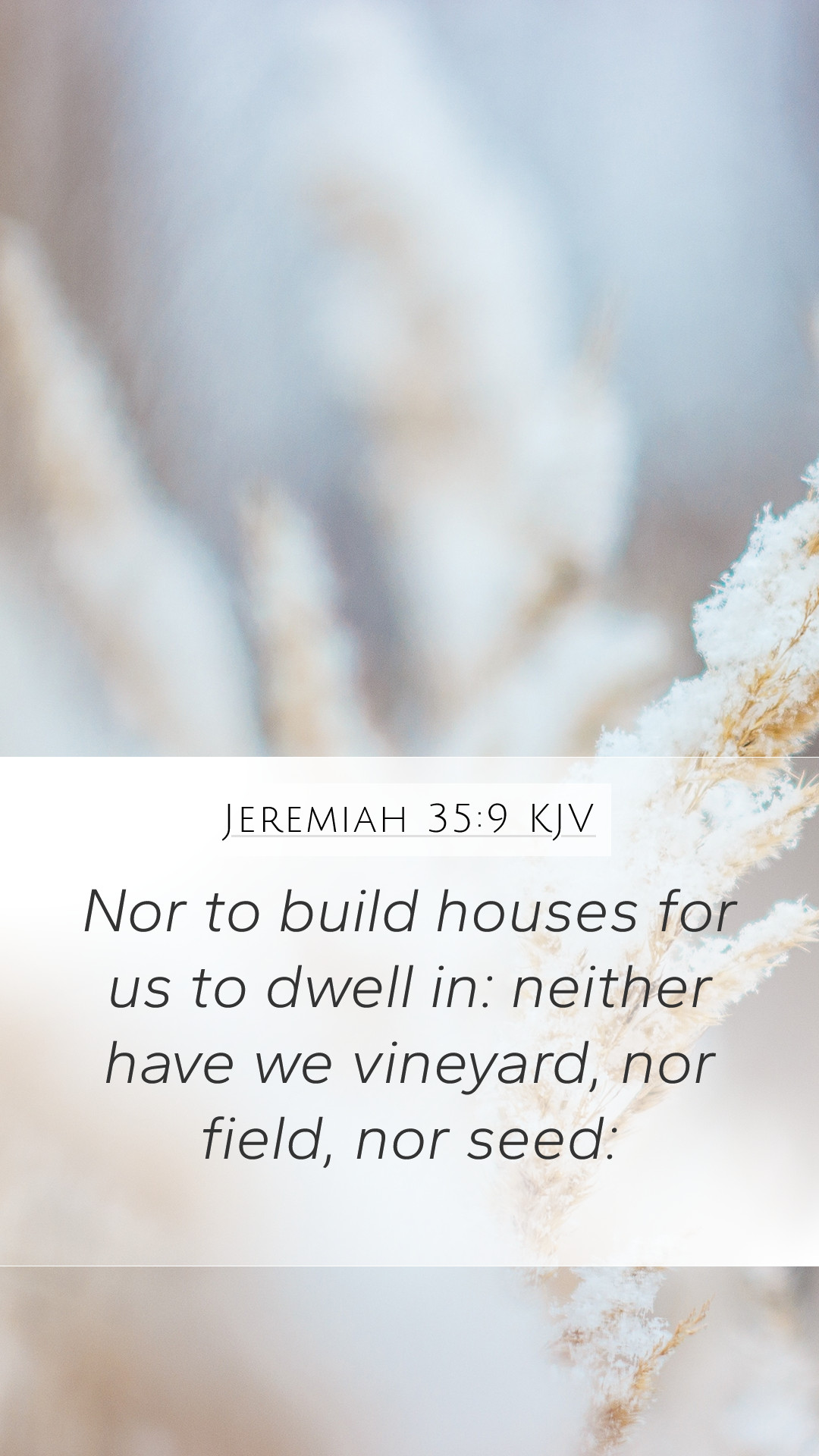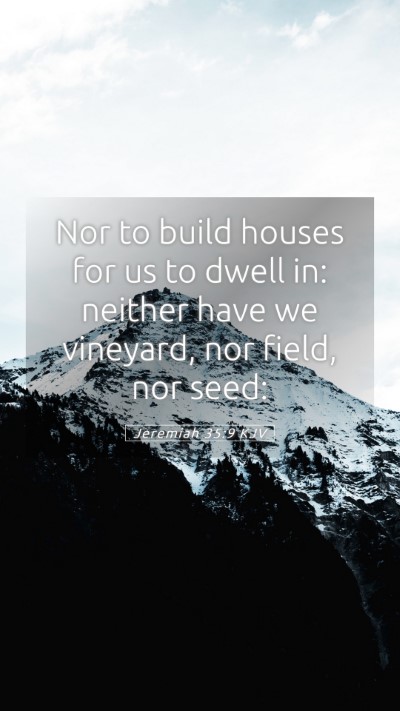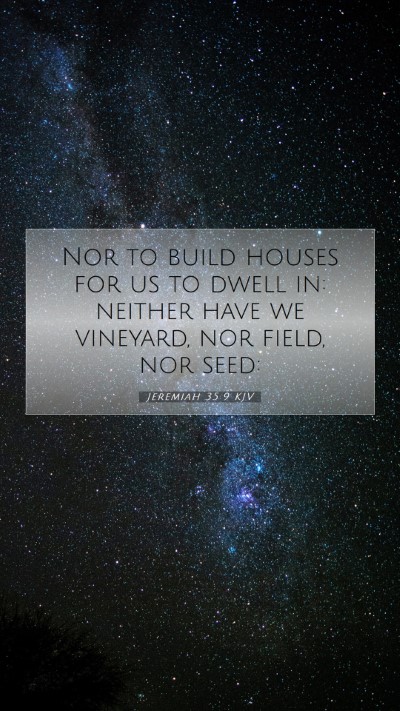Bible Verse Meaning: Jeremiah 35:9
Verse: "Neither shall they build houses, nor sow seed, nor plant vineyard, nor have any: but all their days they shall dwell in tents, that they may live many days upon the land where they sojourn." (Jeremiah 35:9)
Overview of Jeremiah 35:9
The verse Jeremiah 35:9 is a part of a vivid story concerning the Rechabites, a group known for their strict adherence to a nomadic lifestyle. This passage highlights their commitment to their ancestral traditions, which were in stark contrast to the urbanized and settled ways of most of Israel during Jeremiah's time.
Understanding Scripture and Commentary Insights
Historical Context
Matthew Henry emphasizes the importance of understanding the Rechabites' lifestyle in the context of the broader narrative within Jerusalem and its surrounding areas. This account serves as a poignant reminder of obedience to divine commands and the consequences of neglecting one's heritage.
Albert Barnes discusses the significance of the Rechabite commitment to living in tents rather than establishing permanent homes. Their adherence to their father's command to avoid agriculture and settlement signifies a distinct separation from the prevailing culture, illustrating their dedication to maintaining purity in their faith and practices amidst a corrupt society.
Adam Clarke correlates this lifestyle choice with the spiritual lesson about faithfulness and the rejection of materialism. The Rechabites' way of living is portrayed not merely as a physical choice but also as a spiritual stance against the seductions of the world. Their abstention from the comforts of settled life is a direct act of devotion and a testament to their trust in God’s provision.
Key Themes
- Obedience: The Rechabites exemplify total obedience to their father's command, showing their unwavering commitment to their rules and, by extension, to God.
- Contrast with Society: Their nomadic lifestyle serves as a contrast to the settled, urbanized culture that often strayed from God's commandments.
- Faith and Trust: By living a life devoid of permanent possessions or land, they demonstrate a profound faith in God’s provision and a steadfastness to His calling.
- Spiritual Heritage: The Rechabites symbolize the importance of heritage and tradition in maintaining a relationship with God.
Application of Jeremiah 35:9
The verse serves as a powerful reminder to maintain one's convictions despite societal pressures. In today’s context, believers can draw from the Rechabites' example by prioritizing spiritual commitments over material gains. It prompts individuals to reflect on how closely they adhere to their spiritual principles in daily life.
Cross References
- Numbers 30:2: Addresses the importance of vows and commitments within the faith.
- Jeremiah 35:6: The command from Jonadab (their ancestor) highlighting the reason for their lifestyle.
- 1 Peter 2:11: Encourages believers to “abstain from fleshly lusts” that war against the soul, akin to the Rechabites' lifestyle choices.
Conclusion
In conclusion, Jeremiah 35:9 and the surrounding passages serve as a rich source of biblical exegesis that offers profound insights into obedience, faith, and the significance of heritage in the life of believers. Through this scripture analysis, we can learn valuable lessons on how to live out our faith amidst the challenges and distractions of the modern world. This verse stands as an invitation to explore deeper into the meanings of Bible verses and encourages engaging in Bible study groups, lessons, and courses to enhance our understanding of Scripture.


